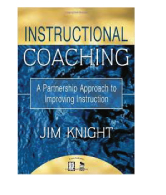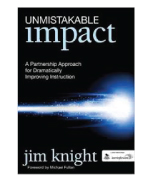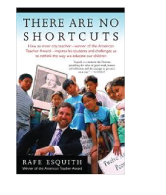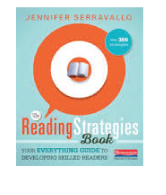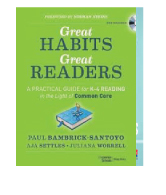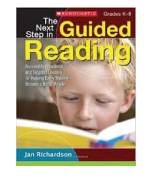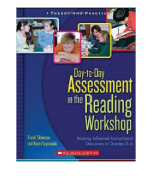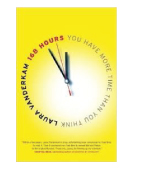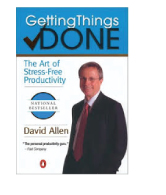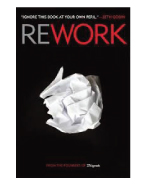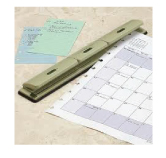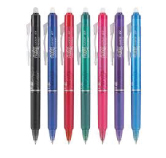How to Set Yourself up for a Successful Year: 11 Coaches Share their Top Tips
Teaching TipsI’m so excited.
Because today I have a fun little surprise gift to share with you!
This past summer I reached out to some of my favorite coaches, and asked them the following question:
What is your #1 tip for preparing for a successful year as an instructional coach?
And here are all of their thoughtful answers, full of wisdom and experience. Enjoy! This is going to be good.
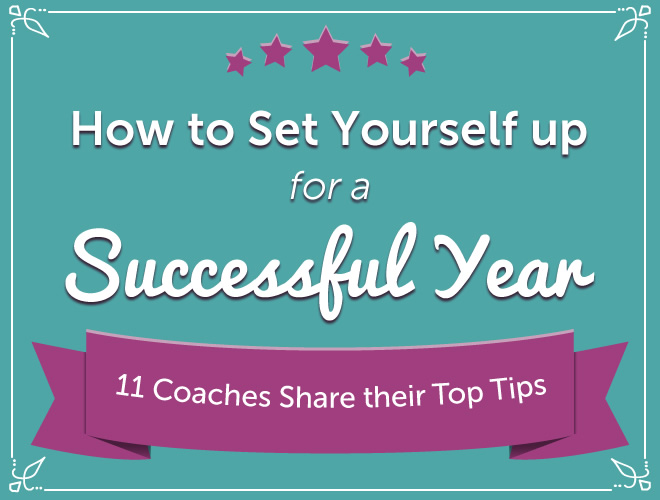
 Elena Aguilar
Elena Aguilar
Sought after presenter, transformational leadership coach, and consultant
ElenaAguilar.com | edutopia.org/users/elena-aguilar
Get clear on your personal and professional hopes, dreams, and goals for the year: What do you really hope to be able to say about the year next June, when you’re heading out for summer? What would be an indicator that you’d had a great year? How do you want your colleagues, coachees, and supervisors to experience you–what would you like them to say about you? And then map this goal on to what the children you serve need you to be and need you to do. Let their needs inform your dreams, hopes and goals for the year.
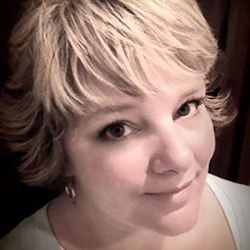 Michelle Te Grootenhuis
Michelle Te Grootenhuis
K-8 Literacy Instructional Coach
Twitter: @MrsTG | Blog: mrstg.edublogs.org
My #1 tip for preparing for a successful year as an instructional coach is to seek out or form a group of coaches, a “cohort”, OUTSIDE of your school and/or district. Such a group will provide you with a safe environment to share joys and insecurities, a place to learn (your own PLC group of sorts) and get ideas from neighboring schools, and a chance for some quality “drive time”.
First of all, especially if you are a first-year coach, you really need a support group. You have walked away from the comfort of your classroom and chances are you really don’t fully understand your new role. A coaching cohort will provide you with a safe place to share those insecurities, but also a place to be reassured as others share their joys as well. If you are lucky enough to have a group with mixed levels of experience, your colleagues will be able to reassure you. Trust me, they felt the same apprehension during their first few days and weeks until they got into a groove. I was certainly blessed with wisdom from coaches that had been in the role for three years within my group.
Secondly, this coaching cohort will become your own professional learning community (PLC) of sorts. While you might not dive into data like a traditional PLC group would, you will certainly share what is working in your schools. Sharing roles and duties as coaches, curriculum resources, and instructional methods are all part of being in the cohort. This is a great way for new coaches to contribute to the group as EVERYONE has something positive to share from their schools/districts.
And chances are you will be TRAVELING to meet with your group. Believe it or not, that drive time is absolutely one of the biggest benefits! My first year my two fellow new coaches and I drove 45 minutes one way to attend cohort meetings set up by our local state education agency. That time together was probably the BEST part of those meetings as we were able to use that time to talk about joys, insecurities, and then on the way home, ideas gleaned from the meetings. My second year, I traveled just 10 minutes down the road to a local group that would meet during a “working lunch” 90-minute block of time. That 10 minute drive time was good for me to think through what I had accomplished so far, what I needed to get done yet that day/week, and then ponder ideas gleaned from the meeting. Drive time is like built-in reflection time, something we don’t get enough of as educators.
So, if you have access to such a group, make sure to JOIN it. If not, do what a few local coaches did my second year, take that bull by the horn, reach out to neighboring schools or districts and form your own “Coaching Cohort”. It will be one of the best things you can do to take care of your own professional learning and personal well-being as a new instructional coach!
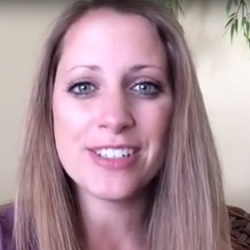 Gretchen Schultek
Gretchen Schultek
Educator and Consultant
AlwaysaLesson.com
My number one tip for preparing for a successful school year as an instructional coach is to organize all of your resources into a binder. By having all of your important documents in one place, it makes it easy to reference when needed as well as light enough to grab on the go! A coaching binder will grow as the year progresses, but there are a few documents you can include in it from the beginning. For example, curricular standards, teacher roster, school building map with classroom locations, master schedule, etc. As you meet with teachers throughout the year, you will want to add sections for observations or meeting notes, feedback slips, debrief discussion prompts, data collection tools, rubrics, lesson plan formats, guides, visuals, etc. This binder will become your “bible” as you learn the ropes as an instructional coach. Don’t be afraid to make it yours and revamp and reorganize as often as necessary. Best of luck on a successful year as an instructional coach!
 Stacie Giesecke
Stacie Giesecke
3rd Year Instructional Coach, Pleasant Valley High School, Bettendorf, Iowa
Online Instructor: isea.org and AEA PD Online | Advancing Educators (Classes offered for re-certification and salary advancement)
It’s so hard for me to come up with just ONE tip to start the year! As I start year 3 as an instructional coach (I’m in my 3rd year – previous experience of 20 years in Special Education), I think that it’s important to have a positive attitude and open mind. Teachers are super overwhelmed at the start of a new year. So many things to get ready and set up, they have little time to think about themselves and what they truly want to work on as a professional. I like to make sure I have read up on all the books I have stacked up (still have a lot to do in this area!!!), gather my resources from any conferences/trainings I attended over the summer (went to an amazing conference and am so excited to continue networking), and remember the little things (coffee, candy, and positive notes)!
Teachers like that we remember them, appreciate them and all they do for kids, and are truly there for them to help them develop as a professional AND help increase student achievement.
I always keep it real. I am learning with the teachers and love doing it. Hope this helps you all kick off a great school year!
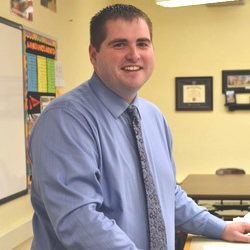 David Voves
David Voves
Instructional Coach, Charles City, Iowa
My #1 tip for preparing for a successful school year is being organized. Organization is such a simple thought, but one that can consume so much time throughout the year. The Time & To-Do Planner truly helps me accomplish my organizational goal. Key elements of organization include planning for professional learning, collaboration and coaching cycle planning, and my individual career development plan.
Professional learning not only includes summer opportunities, but also researching and registering for professional learning throughout the upcoming year. Finding the best possible-learning opportunities to make me a more efficient and comprehensive coach takes time and planning. In addition, I use the summer months to invite teachers to attend these opportunities with me to spark greater collaboration throughout the year. By pre-selecting these opportunities earlier than later, early-bird fees often apply and it helps ensure that sub requests can be granted for teachers early. From a coaching standpoint, it also allows me to prepare for days in which I will be unavailable to support in-district teachers.
Planning and preparing for future upcoming coaching cycles also helps ensure organization. By gathering preliminary collaboration requests for this upcoming year this past May, I have been able to have conversations with teachers about their goals for our upcoming learning. Goals have allowed me to research associated instructional strategies and find additional curriculum and technology resources. I’ve also been able to create a preliminary calendar for this year, which organizes cycles, and allows me to communicate my availability for additional collaboration.
Good luck!
 Deborah Meister
Deborah Meister
Instructional Coach at Lighthouse Community Charter School, Oakland, California
DeborahMeisterCoaching.com
Take time to ask the right questions — deeper questions, when setting or revisiting goals with a client. As I completed my end-of-year reports and reflection with my coaching team in June, it became clear to me the difference in how coaching had impacted folks based, at least in part, in how intentionally I had held the goal-setting process. In “The Coaching Habit: Say Less, Ask More & Change the Way You Lead Forever”, Michael Bungay Stanier talks about what he calls the focus question, which I have found particularly helpful: “What’s the REAL challenge here for you?” Whether I ask that precise question or simply work from the intent behind it, it nudges my coachee and I to pause, look beyond what comes up first, and dig deeper as we consider the focus of our work together towards meaningful outcomes. It keeps us from rushing into committing to the wrong goals, and it leads to a work plan that the teacher is more likely to be invested in co-creating, implementing, and refining. Slowing down at the beginning goes contrary to everything in my nature for the beginning of a school year, which is to want to jump right in and implement systems! But it’s so worth it for me, the teachers I support, and their students to take the time to uncover what’s really core.
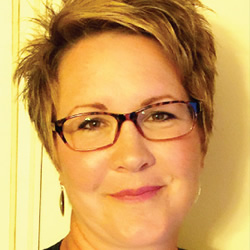 Amanda Meachem
Amanda Meachem
Secondary Instructional Math Coach, Pickerington Local School District, Pickerington, Ohio
Twitter: @pickmathcoach
So, my #1 tip (ok, maybe my top 3 tips) on how to prepare for a successful year as an instructional coach is to organize, prioritize, communicate!
Being organized will be a life saver when you’re in high demand. Whether it’s on a Google Doc or in a binder, I suggest organizing each teacher’s schedule and room number, contact logs to document conversations and coaching, and materials specific to each teacher’s needs. Keeping a tidy work/office space will make it easy and is welcoming for teachers to come talk and spread out materials.
Prioritizing your work for the start of the year is essential. Although this can change as the year unfolds, having a plan of attack and a general timeline will give structure to your role. Being aware of your building and district goals is crucial and will help focus your work. Some teachers will be excited to work with you, so make them a priority by tapping into their excitement.
Communicate, communicate, communicate! It’s easy to get caught up in emails and meetings especially when you serve a lot of teachers in multiple buildings, but get out there! Chat with teachers in the hall between class change, eat lunch in the teachers’ lounge, attend social gatherings, etc.Ask teachers where they need support so your efforts and feedback are targeted, and I recommend asking teachers what they want as well. This can go a long way in helping you connect with a teacher…never a bad thing when building relationships! Talk with your administrators, department chairperson, and special education coordinator so the messages you communicate are consistent. Be accessible and share your daily schedule with those depending on you. I’d also suggest creating a “Pineapple (Welcome) Board” for teachers to invite others to observe the awesome things they’re trying; it’s a great way to get teachers talking about teaching and learning!
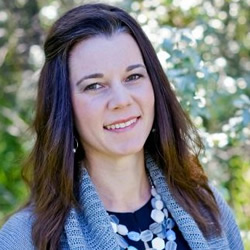 Kimberly Wakefield
Kimberly Wakefield
Instructional Coach
Twitter: @kim_wakefield | KimberlyWakefield.com
As an instructional coach for a K-5 elementary school, the number one tip I have about gearing up for a new school year is to ensure that I am building trusting relationships with our staff, and the number one way to do that is to communicate and stay organized! In order to communicate, I must have all of my responsibilities coordinated. This consists of lots of planning (using my Time & ToDoPlanner really helps with this!) I sit down with different colored pens and iron out the calendar for the year. First looking at benchmark dates so I can mark off weeks in my calendar the few times each year when I will not be accessible to classrooms because I am responsible for facilitating our team to complete all of our benchmark assessments. Next, I look at how long it will take me to get all of our instructional groups up and running in accordance with completion of benchmark assessments and data team meetings. Once I have the date down for when I can start coaching cycles, I mark in my planner when letters need to go out to the staff, how long I can run each cycle and organize the request survey to send to staff. Typically, I can run four, 6 to 8 week cycles per year. After I have all of that recorded and grouping in my planner, I can then sit down and draft out an email to the staff of all specifics going on for the year, which really helps with those relationships. I share when my cycles will start, when to expect our team for benchmark assessments and how I can learn along side them with our professional development focus for our school.
Once the communication piece is in place, organizing our instructional support room comes next! I house a lot of materials that teachers need and use throughout the school year, from professional books and teaching resources to assessments and supplies! In order to be ready for teacher requests, I must have everything organized and ready before school starts. This means many hours of unboxing and labeling (which makes my heart happy!) Also, the instructional support room is utilized for many learning groups, so I need to ensure it is ready for kids’ use too!
In conclusion, in order to start the year off right, meeting with our principal to ensure we are on the same page in regards to professional development in the building is critical. This allows me to communicate the best I can to the staff in order to keep those relationships so I can ensure the best possible coaching support in our school.
Lauren Fong
Instructional Coach
thechartchicks.blogspot.com
My #1 tip to prepare for a successful year is to create an organization system that works for you. Then take the time daily, weekly, or monthly to revise your system and stay organized. Keeping track of your schedule, notes from coaching cycles, and other projects can get overwhelming if you are not organized.
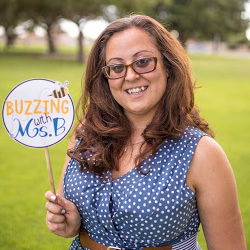 Chrissy Beltran
Chrissy Beltran
My tip for a successful year of coaching is to start with some goals for campus growth. Think about what areas your teachers would like support in, and how you can help them grow in those areas. Isolate it down to about 4-5 actionable items; things you can actually do to support your teachers. Then, write it down and post it! Throughout the year, when you feel like you’re being pulled in 8 million directions, take a look at your goals and reflect. Is your work reflecting your goals? Do you need to change them? And do you need to adjust the way you’re spending your time in order to accomplish those important items?
Kristin Houser
You know me :)
My #1 tip is this — Listen to these guys! There is a ton of gold offered in these thoughts. Let this be the blog post that you revisit more than a few times, take notes on, and really reflect on how to put any or all of these suggestions into practice this year.
If you set yourself up for success, anything is possible.
And you’re sure to make that happen by taking action on the advice shared here.
A BIG, HUGE thank you to all of the coaches who participated in this post!
Talk to you soon,
![]()




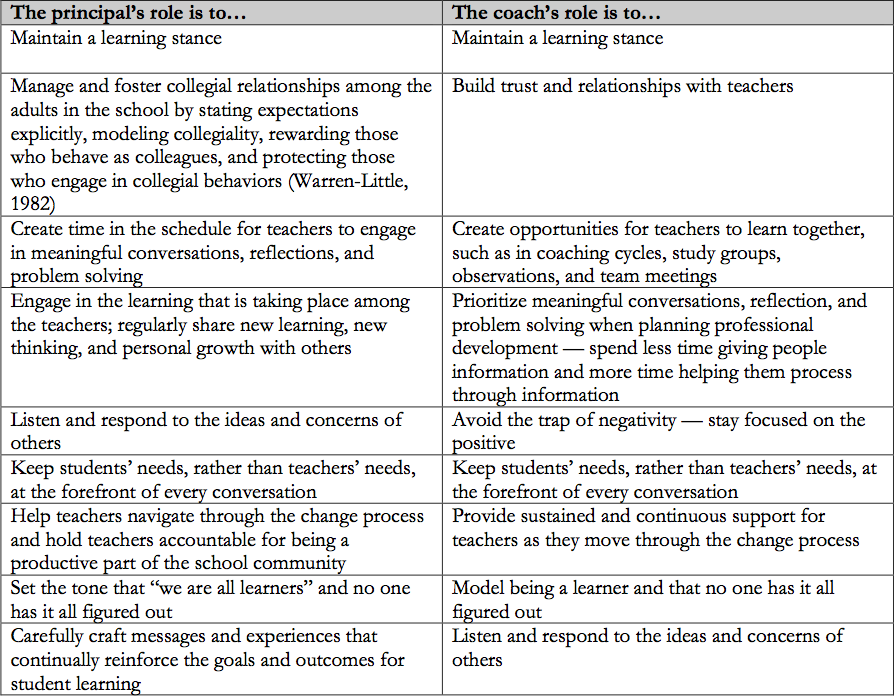
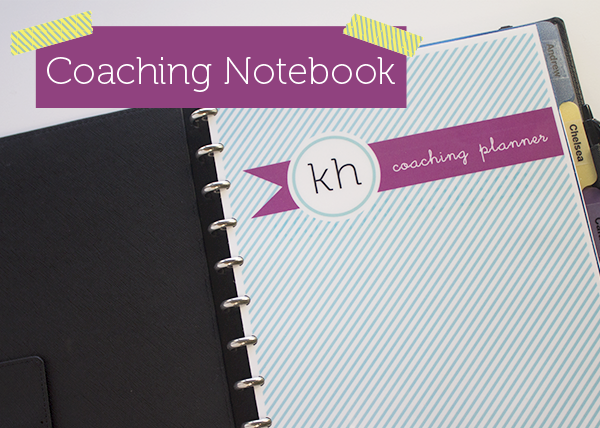

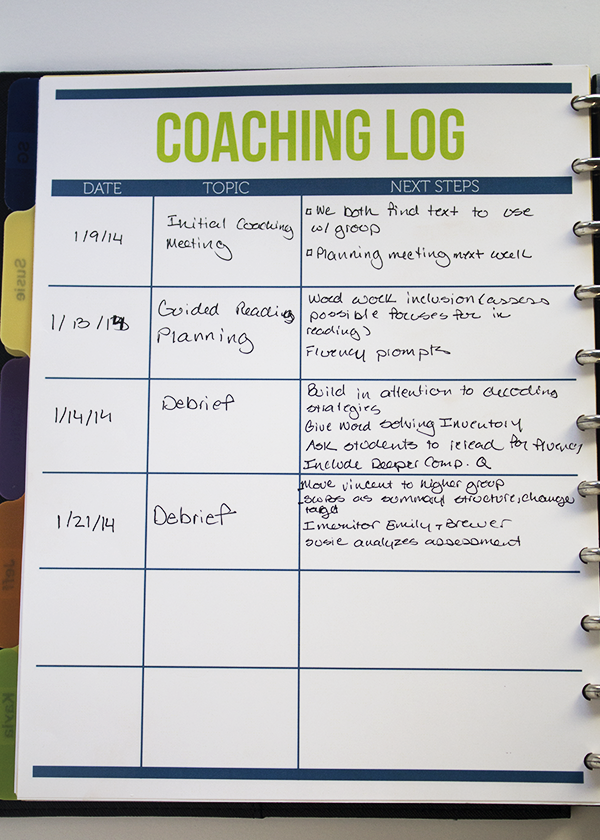
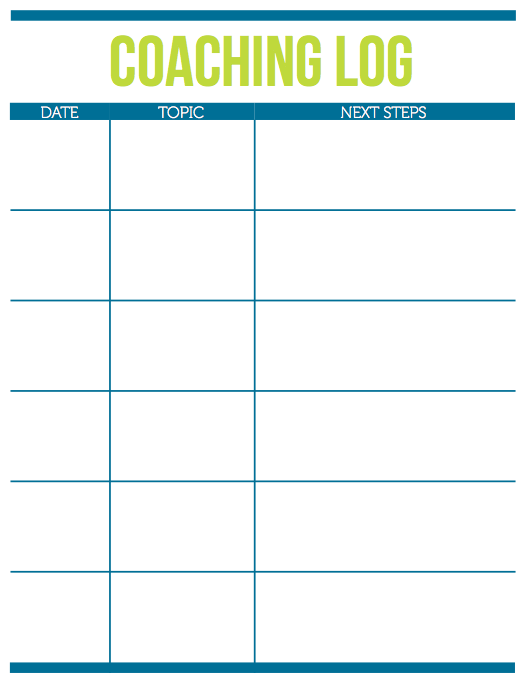
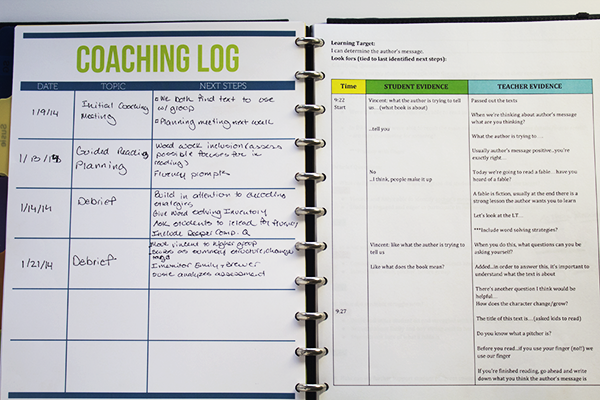
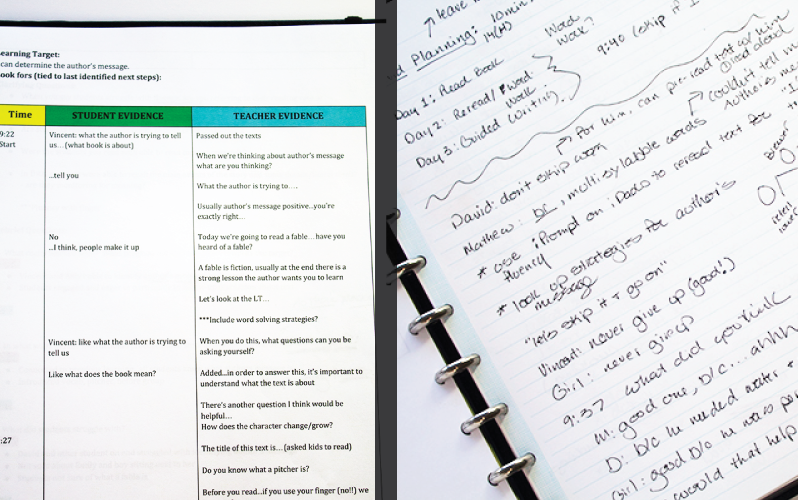

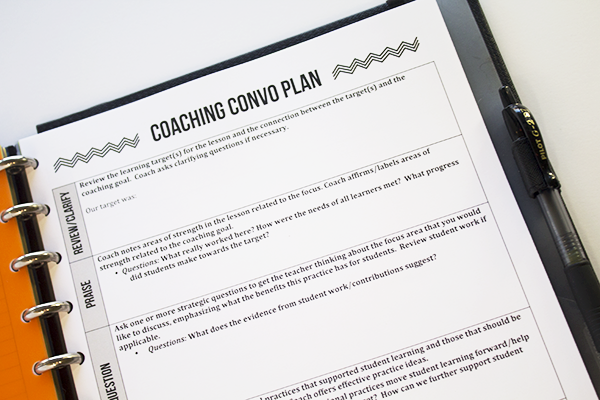
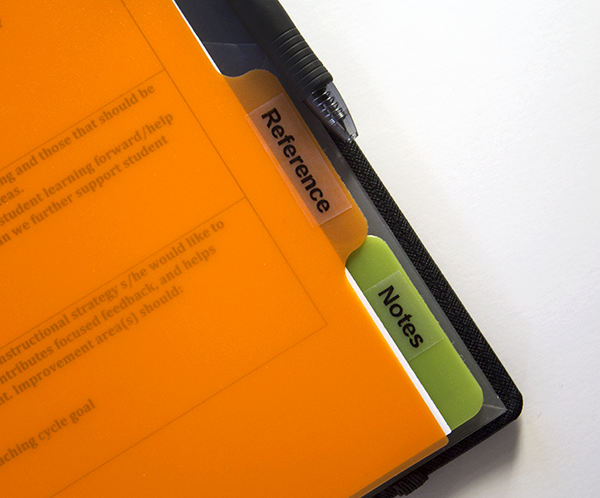
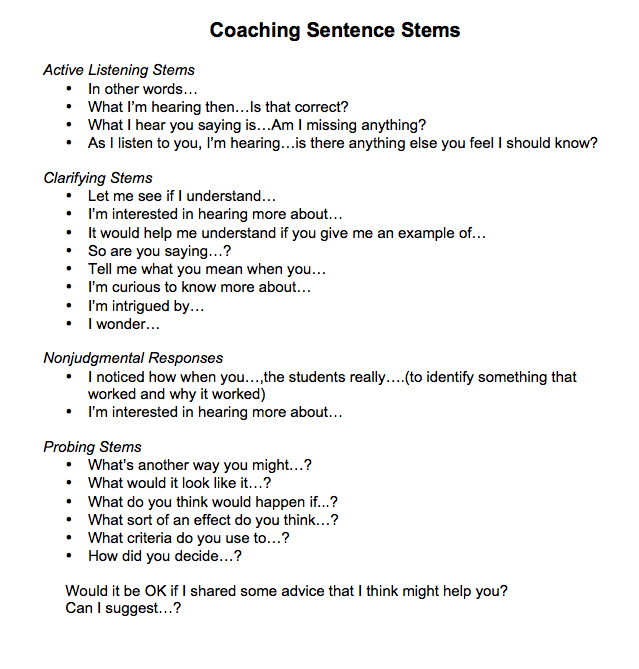
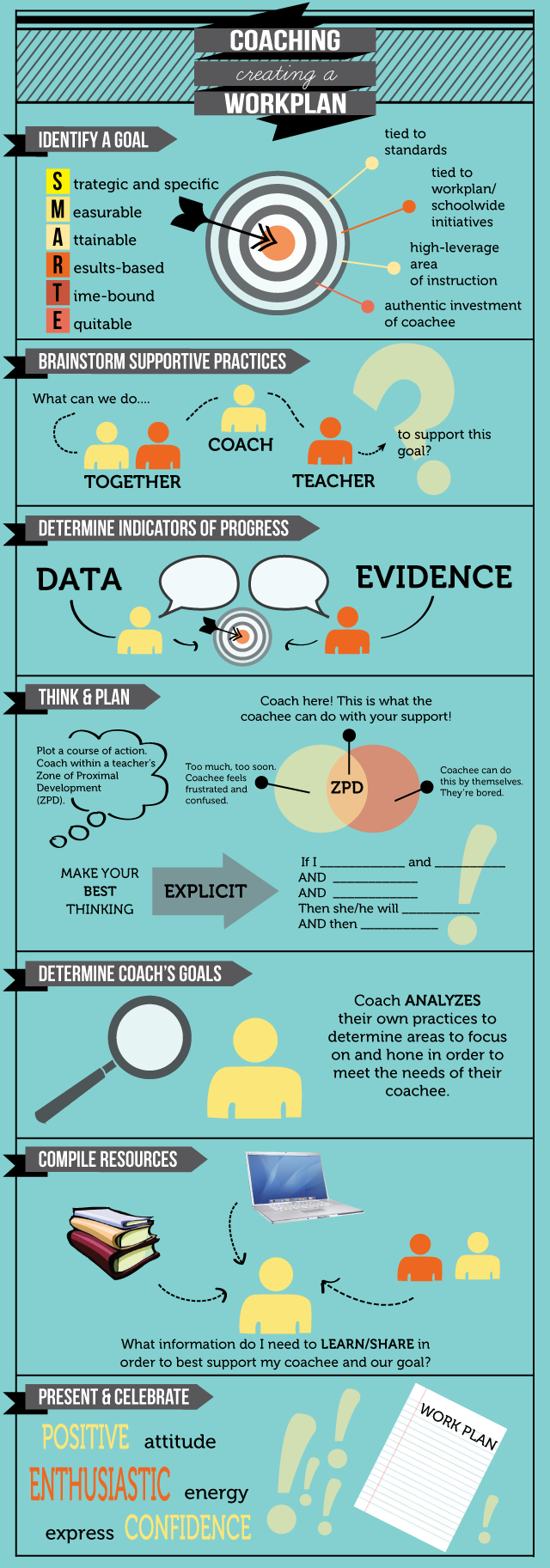
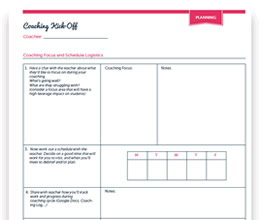
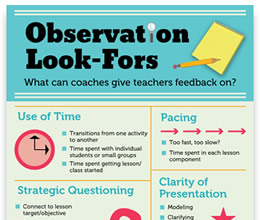
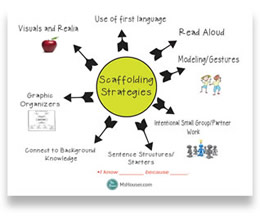
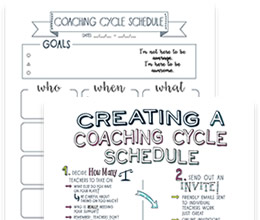
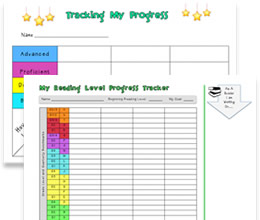
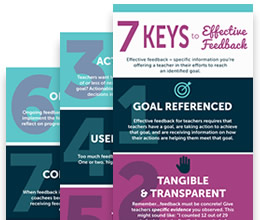
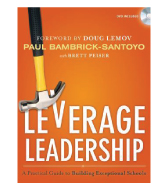
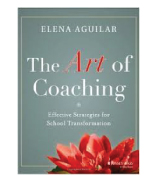 The Art of Coaching
The Art of Coaching